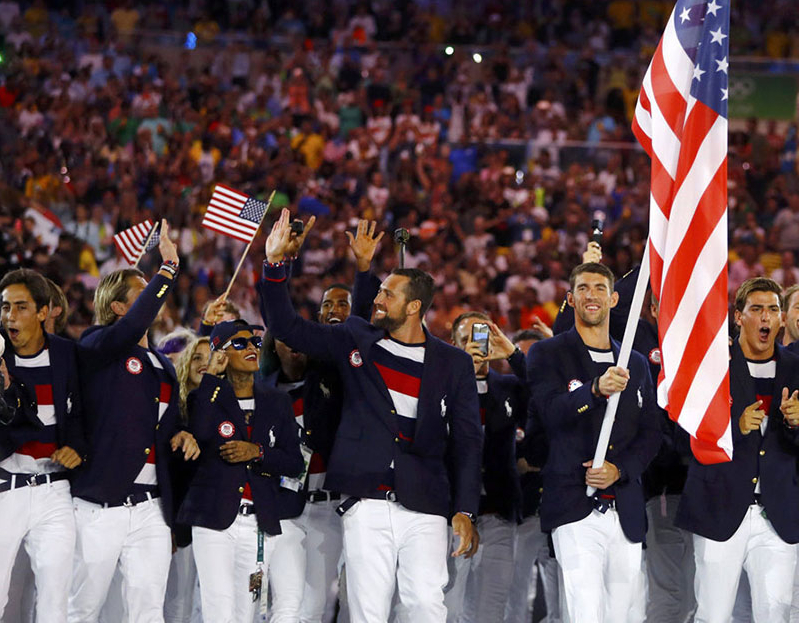
Team USA's 554 athletes at the 2016 Olympics are a cross-section of the nation they represent, with Protestant, Catholic, Jewish, Buddhist and Muslim members, among others. With many of the winning medalists so far in Rio de Janerio immediately attributing gratefulness to God, Christians are discussing the possible extra benefits athletes get from their faith connections.
In a Religion News Service article this week, one reference indicated athletes define faith-related support in different ways. For some, it is the feeling of not being alone during competitions. For others, it is a sense that the outcome -- whatever it is -- is for the best. And once in a while, someone says God "wants" them to win, reports the author.
"If there is an advantage these guys would tell you it gives them, it is in dealing with the ups and downs of training and injury, of winning and losing," said Chad Bonham, an Oklahoma-based writer who interviewed scores of Christian athletes for his book "Glory of the Games: Biblical Insights From the World's Greatest Athletes."
"Winning can be a drug, an upper, and losing is a downer, so it (faith) helps give them an edge in dealing with the glory they receive from winning and the awful feeling of losing. There is a certain balance in those people in that they understand what they are doing and what is happening to them."
A 2004 study pointed toward a couple of main reasons some athletes are religious: athletes may be attracted to a religion's link between humility and direction; and it "provides a cognitive framework" athletes can use to understand the 'why am I doing this?' part of elite competition.
"Faith is not a substitute for hard work, perseverance or talent," said Joel Fish, director of Philadelphia's Center for Sport Psychology, who has worked with athletes at the Olympic and professional level. "But when those bases are covered, I believe faith, for certain athletes, can be a source of comfort, of motivation, of consistency."
Fish said some athletes use prayers to stay grounded.
But he notes religion is not a prescription for athletes toward ultimate rewards. "It has to be something that is genuine and sincere," he said. "It has to be part of the person for them to be able to develop it as a sort of mental anchor."
One example of this is cross-country skier Rebecca Dussault, who participated in the Olympics course for Team USA in Torino, Italy, in the 2006 Winter Games, while wearing her Catholic faith on her skis. She wrote "Blessed Frassati" across her skis, a tribute to Pier Giorgio Frassati, an early 20th-century Italian Catholic skier dedicated to the poor and sick she adopted as her patron saint.
"He was an ordinary guy," Dussault, now a trainer, said from her Colorado home. "He was all about everything I was trying to do and he was 24 when he died and I was 24 at the time. I thought, this is a godsend - to have this extraordinary person in my life."
Dussault also having her mother, husband and son in Torino with her formed a kind of "traveling church" for her within the intensity of Olympic competition. "For me, that was very healing," Dussault said. "The Olympics were a very physical experience but for me it also had that spiritual side, a whole other layer. It was why I was there. It was a mission."
"Faith helps you cope with suffering and pain," she said. "It pulls you into a sacrificial place, it pulls you out of sloth so you can suffer well and find meaning in places where a purely secular athlete may not probe those depths."







